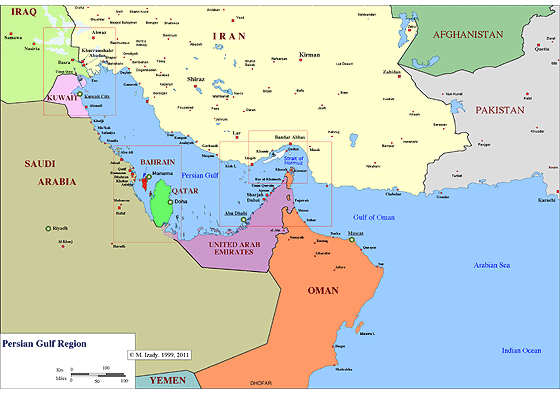by CAMELIA ENTEKHABIFARD
 MAP/Columbia
MAP/Columbia
Throughout the Gulf region people are talking about the rift between Saudi Arabia (and its allies) and Qatar and the unexpected appointment on 21 June of Muhammad Bin Salman (known as ‘MBS’) as Saudi Arabia’s new crown prince. The unprecedented attempt to marginalise a fellow Gulf Cooperation Council (GCC) member has shocked many in the region, and there are fears that the promotion of MBS may further exacerbate the tension.
For months it has been obvious that King Salman was grooming his favourite son as his successor, but few imagined that happening quite so soon.
At the core of the Qatar furore lies the longstanding rivalry between Saudi Arabia and Iran. Throughout the commotion, Iranian politicians have largely kept quiet and advised both parties to settle their issues through negotiation. But if they were concerned about the inter-Arab squabbling, the promotion of MBS has sent an altogether more powerful message to the Iranians, as he is behind the war on Yemen, and seen either as a ‘reformer’ or as ‘reckless’.
Most of the recent editorials in the Iranian press express extreme concern at the possibility of a full-on confrontation with Riyadh. From the Iranian perspective, recent events in the Gulf are all interrelated and risk jeopardising security and stability in the region.
The heated feelings — with Saudi hostility to Iran reciprocated by that of more militant members of Iran’s Revolutionary Guards — have prompted some Iranians to launch a campaign on Twitter under the (trending) hashtag #NoToWar. The hardships of Iran’s long war with Iraq in the 1980s are still fresh in the memory of many Iranians.
At the same time, Iran is itself in the midst of a transition as the Supreme Leader, Ayatollah Ali Khamenei, is now old and debate over his successor has already begun.
Monde for more
